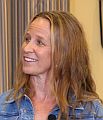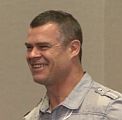LIVING WATER SMART IN BRITISH COLUMBIA: “A measure of the consequence of human settlement is the Riparian Deficit. It is the natural systems equivalent of the well-known Infrastructure Deficit for engineered systems,” stated Tim Pringle, Chair of the Ecological Accounting Process initiative

“The Riparian Deficit applies to the regulated setback which is the interface between land and a stream,” stated Tim Pringle. “EAP is a land use perspective. EAP provides local governments with the real numbers they need to deliver outcomes: What is the number for the line item in a local government annual budget for community investment in maintenance and management, that is M&M, of streams? Streams need a place to be. If we cannot get our heads around that, we are not going to keep our streams. When something does not get measured, it does not get managed,” stated Tim Pringle










